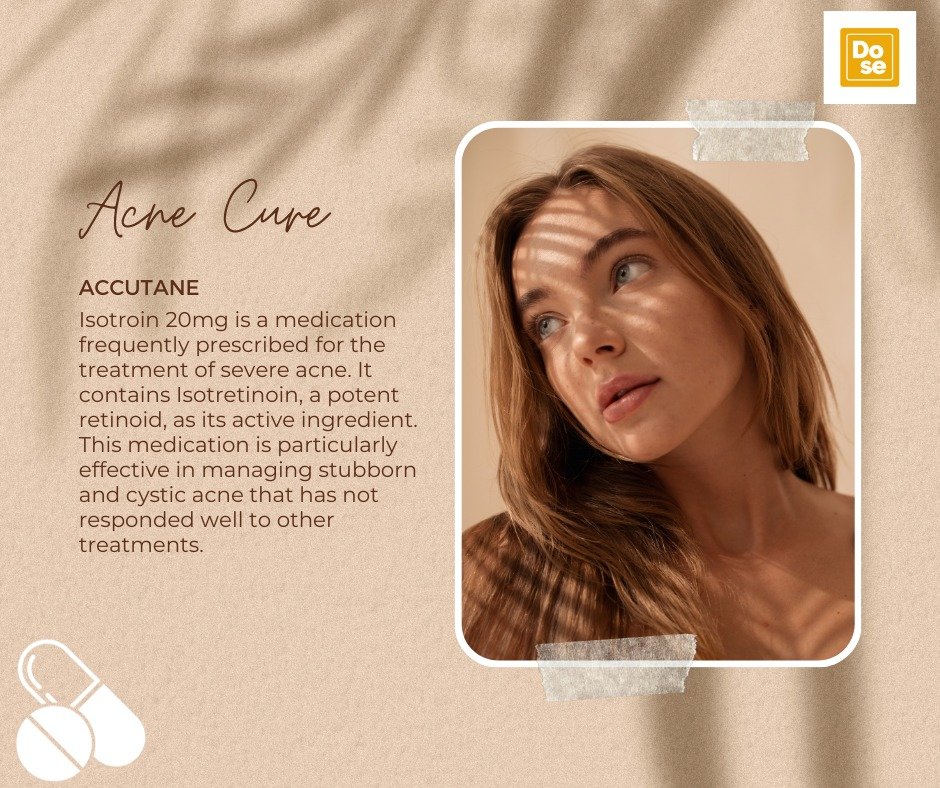Acne is a common skin condition affecting millions worldwide. From mild breakouts to severe cystic acne, the quest for clear skin can feel overwhelming. The good news? Modern medicine offers several effective treatments. But with so many options, which is the best medication for acne?
Understanding Acne: The Root Causes
Before diving into treatments, it’s essential to understand what causes acne. Acne occurs when hair follicles become clogged with oil, dead skin cells, and bacteria. Factors like genetics, hormones, diet, and stress can contribute to these breakouts. The severity of acne can range from small pimples to painful cysts, each requiring different approaches to treatment.
Top Medications for Acne: What Works?
There isn’t a one-size-fits-all solution for acne, but several treatments have proven effective. Let’s explore some of the best options based on severity and skin type.
1. Benzoyl Peroxide: A Powerful OTC Solution
Benzoyl peroxide is a popular over-the-counter (OTC) medication that targets bacteria and reduces inflammation. It works by killing the acne-causing bacteria, Propionibacterium acnes. Available in creams, gels, and cleansers, benzoyl peroxide is ideal for treating mild to moderate acne.
Pros:
- Widely available without a prescription.
- Reduces redness and inflammation.
- Comes in various strengths.
Cons:
- Can cause dryness and peeling.
- May bleach clothing and towels.
Best for: Individuals with mild to moderate acne looking for an effective daily solution.
2. Salicylic Acid: Exfoliate and Unclog Pores
Salicylic acid is another common OTC treatment that exfoliates the skin and unclogs pores. It helps in breaking down the dead skin cells that cause blockages in hair follicles, thus preventing new acne.
Pros:
- Gentle on the skin.
- Effective at preventing future breakouts.
- Helps reduce blackheads and whiteheads.
Cons:
- May not be strong enough for severe acne.
- Can cause slight irritation and dryness.
Best for: Those prone to blackheads and whiteheads or with sensitive skin.
3. Retinoids: The Gold Standard for Severe Acne
Retinoids are derived from Vitamin A and are available both over-the-counter and by prescription. They work by increasing cell turnover, preventing clogged pores, and reducing inflammation.
The most popular retinoid is Tretinoin, a potent treatment for moderate to severe acne. Adapalene (Differin) is another commonly prescribed retinoid available in lower concentrations over the counter.
Pros:
- Highly effective for moderate to severe acne.
- Reduces fine lines and wrinkles as a bonus.
- Helps prevent future acne by keeping pores clear.
Cons:
- Can cause irritation, redness, and peeling in the early stages.
- Requires patience, as results may take 4-8 weeks to show.
Best for: People with moderate to severe acne who are looking for a powerful treatment option.
4. Antibiotics: Fight Bacteria From Within
For more severe acne cases, dermatologists may prescribe oral or topical antibiotics. Clindamycin and erythromycin are common topical options, while oral antibiotics like buy doxycycline online or minocycline work internally to reduce acne-causing bacteria.
Pros:
- Highly effective in reducing inflammation and bacterial growth.
- Can be combined with other treatments like benzoyl peroxide or retinoids for a stronger effect.
Cons:
- Long-term use can lead to antibiotic resistance.
- Can cause side effects like upset stomach or sun sensitivity.
Best for: Individuals with moderate to severe acne or those dealing with cystic outbreaks.
5. Isotretinoin (Accutane): The Ultimate Solution for Severe Acne
Isotretinoin 20mg, also known by the brand name Accutane, is a potent prescription medication used for treating severe cystic acne that hasn’t responded to other treatments. It works by shrinking oil glands and reducing the amount of oil produced by the skin.
Pros:
- Can lead to long-term acne remission.
- Highly effective for treating severe, resistant acne.
- Reduces the risk of scarring.
Cons:
- Requires close monitoring due to potential severe side effects, including dry skin, mood changes, and birth defects.
- Only available through prescription and is typically considered a last resort.
Best for: Individuals with severe, treatment-resistant acne who have not found relief through other methods.
6. Hormonal Treatments: Balance from the Inside Out
For women, hormonal acne is often linked to fluctuations in estrogen and progesterone levels. Birth control pills containing these hormones can help regulate the skin’s oil production. Another option is spironolactone, a medication that blocks androgen receptors, reducing oil production.
Pros:
- Effective for women with hormonal acne.
- Reduces sebum production and breakouts.
Cons:
- May cause side effects like mood changes, nausea, or weight gain.
- Not suitable for everyone, especially pregnant women.
Best for: Women experiencing hormonal acne, often around their menstrual cycle.
Which Acne Treatment is Right for You?
Finding the right acne treatment often depends on the type of acne you have and how your skin responds to medications. For mild cases, starting with benzoyl peroxide or salicylic acid might be enough. If your acne is more persistent or severe, retinoids or antibiotics could be the next step. Those with cystic acne may need to consider isotretinoin under a doctor’s supervision.
For women dealing with hormonal fluctuations, hormonal therapies can provide significant relief. Always consult a dermatologist before starting any new treatment, especially prescription medications, to ensure you’re getting the safest and most effective solution for your skin.
Final Thoughts
While there are many acne treatments available, the best medication depends on your unique skin type, severity of acne, and individual needs. Whether you’re looking for a gentle over-the-counter option or a prescription treatment for stubborn breakouts, the path to clear skin is within reach.
Clear skin isn’t just about medication; a healthy lifestyle, good skincare habits, and patience are key. With the right treatment and a bit of perseverance, acne doesn’t stand a chance.
